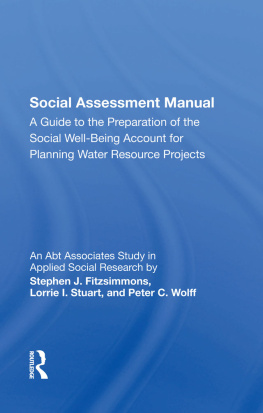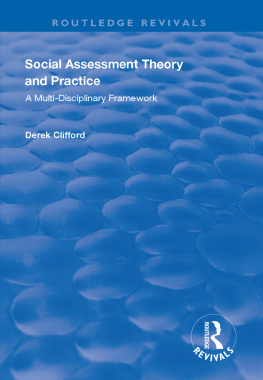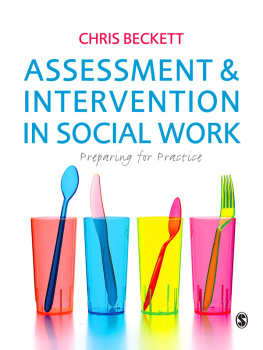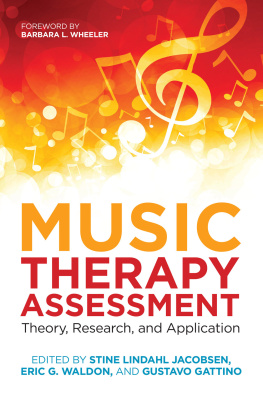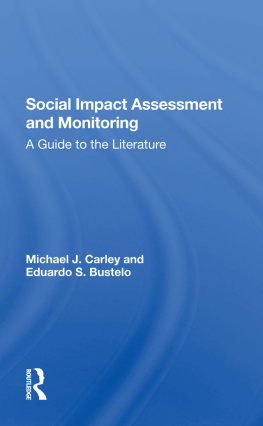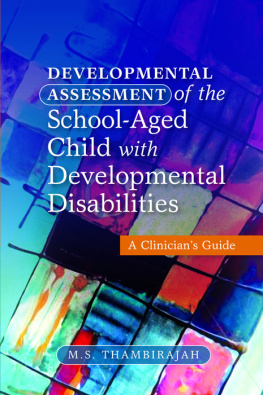Social Assessment Manual
Other Titles in this Series
The Changing Economics of World Energy, edited by Bernhard J. Abrahamsson
Natural Resources and a Democratic Society: Public Participation in Decision-Making, edited by Albert Utton, W. R. Derrick Sewell, and Timothy O'Riordan
The Nuclear Impact: A Case Study of the Plowshare Program to Produce Natural Gas by Underground Nuclear Stimulation in the Rocky Mountains, Frank Kreith and Catherine B. Wrenn
Earthcare: Global Protection of Natural Areas, edited by Edmund A. Schofield
Indonesia's Oil, Sevinc Carlson
Westview Special Studies in Natural Resources and Energy Management
Social Assessment Manual: A Guide to the Preparation of the Social Well-Bein g Account for Planning Water Resource Projects
Stephen J. Fitzsimmons, Lorrie I, Stuart, and Peter C. Wolff
A Social Weil-Being Account is the product of an assessment of the comparative beneficial and adverse social effects likely to occur as a result of implementingor not implementinga particular development plan. This volume establishes procedures for conducting research and analyzing data in order to make this assessment for water development plans, and it provides planners with instructions for completing a formal Social Well-Being Account in accordance with guidelines established in 1973 by the Water Resources Council.
In developing this manual, researchers conducted an intensive review and analysis of the literature in sociology, social psychology, and water resources development, and then systematically identified where important social and water considerations existed. The result is a basis for meaningful social assessment, developed out of theory, research, and program experience and consistent with federal requirements in this realm.
Stephen J. Fitzsimmons, vice-president for social research development with Abt Associates Inc., has done extensive research in the areas of community theory and social research, delivery of human services, and water resources development. Lorrie Stuart has worked as an analyst on numerous Abt projects, among them a social impact assessment of the Tulatin Dam Project in Oregon. Peter C. Wolff is a project director with Abt Associates. His research includes a number of social impact analyses for the Bureau of Reclamation and the Department of Transportation.
Other Abt Associates Studies in Applied Social Research published by Westview Press:
The College Guide for Students with Disabilities, Elinor Gollay and Alwina Bennett
Man and Water: A Social Report, Stephen J. Fitzsimmons and Ovadia Salama
Rural America: A Social and Educational History of Ten Communities, edited by Stephen J. Fitzsimmons, Peter C. Wolff, and Abby J. Freedman
Guidance Manual to Providing Neighborhood Services, Stephen J. Fitzsimmons, Barbara C. Sampson, and M. Brigid O'Farrell
Social Assessment Manual
A Guide to the Preparation of the Social Well-Being Account for Planning Water Resource Projects
An Abt Associates Study in Applied Social Research by Stephen J. Fitzsimmons,
Lorrie I. Stuart,
and Peter C. Wolff
First published 1977 by Westview Press, Inc.
Published 2019 by Routledge
52 Vanderbilt Avenue, New York, NY 10017
2 Park Square, Milton Park, Abingdon, Oxon OX14 4RN
Routledge is an imprint of the Taylor & Francis Group, an informa business
Copyright 1977 Taylor & Francis
All rights reserved. No part of this book may be reprinted or reproduced or utilised in any form or by any electronic, mechanical, or other means, now known or hereafter invented, including photocopying and recording, or in any information storage or retrieval system, without permission in writing from the publishers.
Notice:
Product or corporate names may be trademarks or registered trademarks, and are used only for identification and explanation without intent to infringe.
Library of Congress Cataloging in Publication Data
Fitzsimmons, Stephen J.
Social assessment manual.
(An Abt Associates study in applied social research)
Bibliography: p.
1. Water resources developmentSocial aspectsResearch. I. Stuart, Lorrie I. joint author. II. Wolff, Peter C., joint author. III. Title.
HDI691.F56 309.2'12 76-58332
ISBN 13: 978-0-367-28745-0 (hbk)
This book deals with the assessment of the comparative future beneficial and adverse social effects likely to occur as a result of implementing various water development plans, or as a result of not implementing a plan. It provides planners with an orientation to conducting a social assessment and with instructions for completing a formal Social Well-Being (SWB) Account, in accordance with guidelines established in 1973 by the Water Resources Council. This work has been completed for the U.S. Bureau of Reclamation, which earlier played a pioneering role in economic assessments through development and refinement of cost-benefit analysis. Just as cost-benefit analysis has been extended to a variety of uses beyond those related to water development, so it is hoped that the results of the present work in social assessment will have widespread applicability in a variety of public investments.
Present-day capabilities to effectively assess the social implications of public investments were greatly aided as a result of important, socially oriented legislation and programs conducted during the 1960s. Here, improvement of the quality of life of people, the social well-being of communities, and the equity among citizens were all prime societal goals. In a sense, such experience provided the minimum necessary conditions to move into the complex area of social assessment. However, this alone was not sufficient to achieve effective assessments. Research, theory, and actual program experience were necessary to conceptualize sound social assessment.
In preparation for the development of this book, an intensive review and analysis was required of the theory and research of the fields of sociology and social psychology; a similar review of the broad range of water resources planning and development literature was also completed. In turn, these two separate areas were brought together in order to systematically identify where important social and water considerations existed. Finally, a series of preliminary measures of these relationships were identified. The study examined man's needs for water resources development, and conversely, the impacts, both positive and negative, direct and indirect, of water development plans upon man (see Fitzsimmons and Salama, 1974). Building upon this research, the present book provides a basis for meaningful social assessment, developed out of theory, research, and program experience and consistent with various federal requirements in this realm. The result is a comprehensive, systematic, and representative basis for social assessment.
The Social Assessment Manual has been designed with the needs of the water resources planning officer in mind. While a general orientation is provided, much of the book is devoted to materials and procedures necessary to prepare a Social Well-Being Account in multiple objective planning. The major objectives guiding the authors were clarity, the representativeness of social concerns, and the feasibility of achieving a useful and accurate social assessment.

